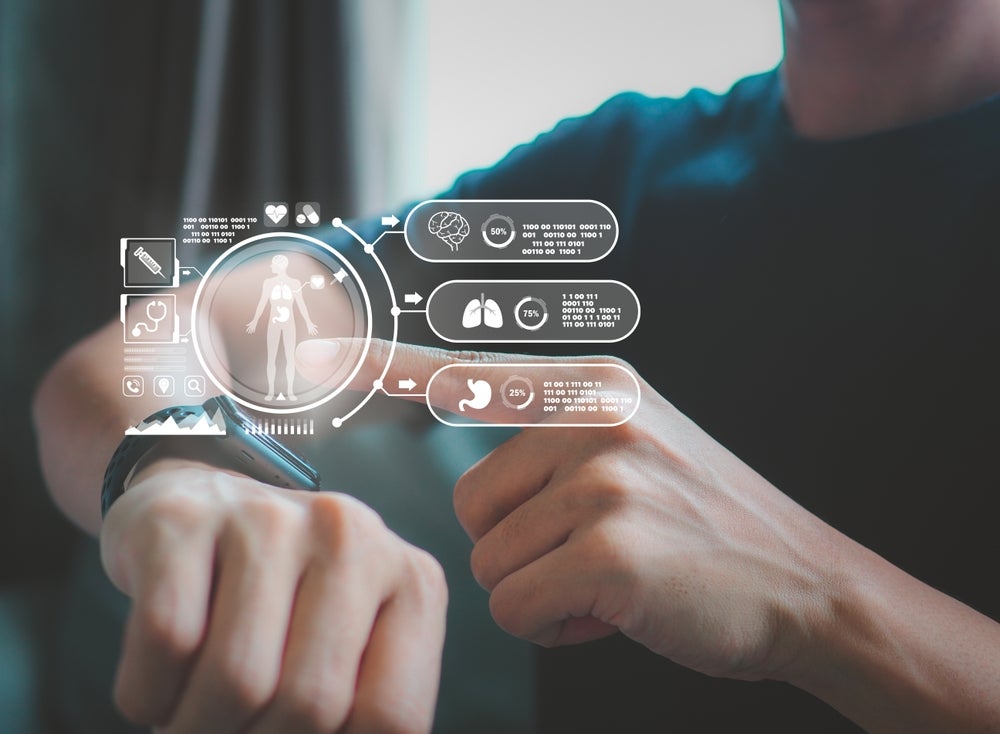Today, it is common to see a smartwatch around almost everyone’s wrist. People wear them for work, sports, health and fitness monitoring, or just to look stylish.
Further health features such as sleep pattern monitoring, heart rate monitoring, fall detection, crash detection, blood oxygen, and medication tracking are proving to be useful for providing insights into the health and wellness of users.
GlobalData reported that the wearable tech market has grown two-fold between 2019 and 2022 as it increased from $51.4bn to $99.5bn, mainly due to increasing demand for hearables and smartwatches. This growth is set to continue. GlobalData estimates that the industry will be worth $290.6bn by 2030, implying a compound annual growth rate (CAGR) of over 14% between 2022 and 2030. Smartwatches and hearables are expected to facilitate this growth. The impact of smartwatches on users will continue to increase with the integration of artificial intelligence (AI), which will further empower these wearables by making them more interactive and smart.
Apple Watch to the rescue
Smartwatches hold significant promise in the healthcare sector. A recent incident reached the headlines in January 2024 after a doctor used an Apple Watch to help a patient onboard a plane.
According to reports, in mid-flight, an elderly passenger suffered from shortness of breath and required immediate medical assistance. Thankfully, an NHS doctor named Rashid Riaz was also onboard and attended to the patient immediately. Realizing that a smartwatch could aid him in helping the patient, Dr. Riaz asked a member of the staff, who gave him an Apple Watch. Using the Apple Watch’s Blood Oxygen app, the doctor discovered that the patient’s oxygen saturation was low. Learning this, he asked the cabin crew for an oxygen cylinder, which allowed him to control and track the patient’s condition until they landed. The remarkable story raises the question of to what extent smartwatches can be used in healthcare.
Smartwatches in healthcare
Smartwatches are proving to be a useful tool for patient monitoring, diagnosing the symptoms of various diseases, detecting potential health issues, and telehealth services, among others. The popularity of smartwatches in the healthcare sector is mainly due to improvements in health and fitness applications and devices’ ability to access smartphone content without a phone. Smartwatches, with their health-monitoring features and sophisticated capabilities, are becoming increasingly influential for health and fitness enthusiasts. Apple and Garmin are leaders in the smartwatch segment and offer fitness tracking and health-related features.
How well do you really know your competitors?
Access the most comprehensive Company Profiles on the market, powered by GlobalData. Save hours of research. Gain competitive edge.

Thank you!
Your download email will arrive shortly
Not ready to buy yet? Download a free sample
We are confident about the unique quality of our Company Profiles. However, we want you to make the most beneficial decision for your business, so we offer a free sample that you can download by submitting the below form
By GlobalDataElsewhere, Xplore Lifestyle and CardiacSense offer smartwatches that track patients’ heart activity and alert their families and doctors if there is a problem. The Murdoch Children’s Research Institute has partnered with Apple to use Apple’s ECG data collected from smartwatches to study cardiac toxicity in young patients.
The future of smartwatches
The impact of of these wearables on users will continue to increase, while AI will further empower these wearables by making them more interactive and smart.
GlobalData forecasts that healthcare will remain the main market for smartwatches in the next three years and claims that as more advancements are made, smartwatches will change how people and health professionals engage and track their health and well-being.
With their many use cases, smartwatches are here to stay for healthcare. It will be exciting to see how these use cases increase and evolve as new advancements enhance their capabilities.








Related Company Profiles
Apple Inc
Garmin Ltd